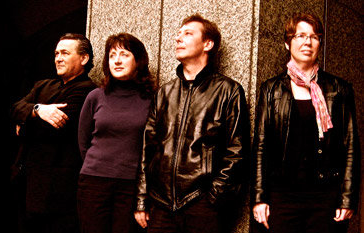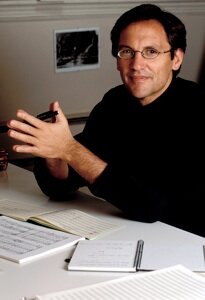The May 9 New Yorker featured an interesting story by Alex Ross. In reviewing the dire financial situation at New York City Opera, Ross went on to say that large classical music organizations across the country, namely, symphonies and opera companies, are being hard hit by the recession.
Classical music organizations, like most non-profits arts institutions, live on the border between solvent and not even in good times.
Tough times often mean life support: Big companies rely on producing the big names in the repertory to, theoretically, draw in larger audiences. But if you’ve been a symphony or opera subscriber for more than a decade, you probably have had enough of Beethoven’s Fifth or La Bohème.
So if classical music fanatics are looking for off-the-track, new compositions or seldom-revived works where do they turn? Smaller organizations, ensembles or performers, which in Seattle, we are blessed with an outstanding selection of.
I have been lucky this year to attend three magnificent performances at the Cornish Music Series. In January, I caught the Seattle Modern Orchestra’s “Strictly Strings” concert, which was as exciting a night of live performance I’ve seen in years. In February, I heard Byron Schenkman in a solo performance at Cornish. He was a revelation; an artist whose talent, passion, knowledge and skills are all meeting at a dizzyingly high peak. If you get a chance to see him, drop everything and go.

I finished off my year at the Cornish series by attending the April 22 concert featuring the odeonquartet presenting a retrospective of the music of Argentinean-American composer Osvaldo Golijov. The concert was slightly misnamed because the odeonquartet, a lively, frisky ensemble, only played one string quartet, Golijov’s wonderfully melodic Tenebrae. Violist Heather Bentley introduced the work as one, “we really love to play.” That was clearly true, because it was joyful and letter perfect. It was a highlight of the evening.
Things took a slight dip in the second piece, Dreams and Prayers of Isaac the Blind, which featured guest performer and clarinet virtuoso Laura DeLuca. It was introduced as a piece that encompassed Jewish folk music, Argentinean folk music, religious music, and modern elements. True enough, but I wouldn’t recommend that particular blend for future composers. DeLuca was called on to play four different clarinets during the long piece, but some were only employed for high shrieking noises.
At the break following this work, audience members were heard debating whether it was advisable to leave. A few did, but I’m glad I didn’t.

The evening rebounded in style when the quartet invited soprano Terri Richter up for two songs: Lúa Descolorida and How Slow the Wind. Richter sang beautifully and was backed with an uncommon delicacy and compassion by the quartet. The show concluded with a performance of Lullaby and Doina featuring DeLuca returning to the stage on clarinet, Paul Taub on flute, and Joseph Kaufman on bass. The work was originally written for the soundtrack to the Johnny Depp movie, The Man Who Cried, but it stood well on its own. Kaufman on bass was the standout.
You don’t have to tread the tried-and-true arts organization route to satisfy your jones for classical music. Cornish is just one of the great organizations doing great work out there. Spend a little time browsing your options and you will be rewarded.